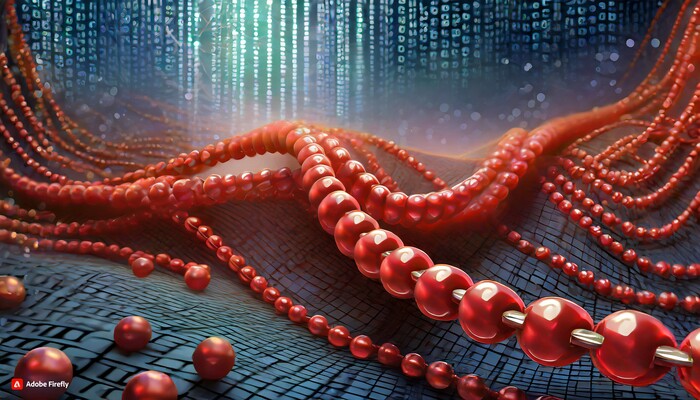Mathematics gives a boost to quantum computers to solve problems that even these futuristic machines cannot yet overcome and, in this way, helps to design new materials and molecules of pharmacological interest. The experiment is published in the journal Science Advances and is due to the research group formed by Cristian Micheletti and Francesco Slongo, both from the International School for Advanced Studies in Trieste, Philip Hauke from the University of Trento and Pietro Faccioli from the University of Milan-Bicocca.
The development of quantum computers is opening up previously unimaginable prospects, promising to solve problems considered insurmountable for conventional computers. However, their computing capabilities are still relatively limited. For this reason, the Italian research group used a mathematical method to make the most of the characteristics of some quantum computers, called 'quantum annealers'. With this method, called Qubo, an acronym for "Quadratic Unconstraint Binary Optimization", it was possible to simulate in a new way dense mixtures of polymers, i.e. very heavy molecules, important both for new materials and for biology. The same approach has also been shown to be effective on traditional computers and the possible applications could be many other molecular systems.
"A simulation technique called 'Monte Carlo' has been a reference method for decades, the study of complex systems, such as synthetic polymers or biological ones, such as DNA. Unfortunately, the efficiency of these simulations decreases rapidly as the density and size of the system increases," Micheletti notes. "For this reason, studying realistic systems, such as the organization of chromosomes in the nucleus of the cell, requires an enormous expenditure of computing resources," he adds.
"Quantum computers promise to exceptionally increase computing performance, but with all the limitations of a technology in the making," notes Slongo, a doctoral student at SISSA and first author of the study. "This is where the new simulation strategy comes in, which is applicable to existing pioneering quantum computers, but can also be successfully transferred to traditional computers."
All rights reserved © Copyright ANSA

